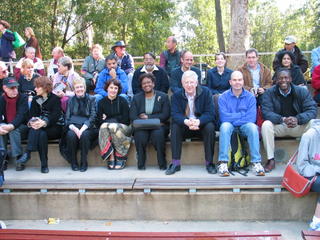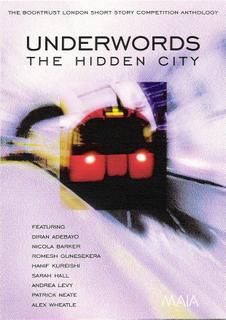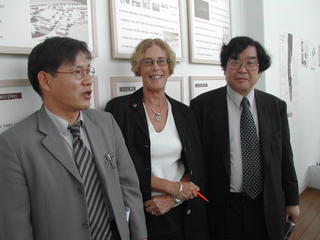I wrote this for the MANIFEST O conference last year organised by NALD, the National Association for Literature Development.
MANIFEST O
Audience/Reader Development
Who are we working for?
In the process of writing this article I’ve realised what Booktrust’s logo is really about. That red book isn’t a novel at all – it’s a notebook, one of those nice hardback ones. It’s the book where readers feel free to doodle, jot down odd thoughts about what they’ve been reading, doing, watching, thinking and feeling recently, with maybe a scrap of their own poetry, a shopping list and some columns of ‘Things To Do’ too.
It represents the breathing space which is the essence of creative reading, where we find the time to reflect on what we make of the world we live in. Everyone has the right to that space, but many lack the literacy skills, the knowledge and, most vital of all, the confidence in their ability and creativity to claim it.
Our work strays into the territory of marketeers, youth workers, programmers, educationalists, PR agencies, literary critics, social engineers, but our particular patch, at least at Booktrust, is tending that time, space and notebook.
Reader Development at its best is a creative endeavour in its own right, undertaken by those who not only like words and believe in increasing access to literature, but find fulfilment in devising imaginative ways to open the books to new readers. We do it for ourselves, but out of a concern that the books are not for ourselves only.
Of course our kind of work is funded by the State and charitable trusts because it hits their targets - improves literacy and educational skills; works with disadvantaged communities; helps to increase library usage and book issues; supports forms of literature such as poetry and short stories which are recognised as requiring subsidy to help them stay afloat and on course in the shark infested waters of our commercial world.
Like a drum, the tone and resonance of what we produce is enhanced by the pull of the different agendas we are stretched between. That’s the creative tension of work in the public realm.
Writers are delighted when we invite them to events where we pay them to plug their new books and talk to polite fans, but can get suspicious of our wider intentions, fear being overloaded with requests to run workshops and pen letters of support for good causes; are wary also of having their work dumbed down to become more palatable to the many.
****

Massed authors, judges and administrators of the Commonwealth Writers Prize in Victoria, 2004
****
Though some writers - Simon Armitage comes to mind as a shining example – are highly supportive of experimentation in the relationshiop between reader and writer, many aren’t. Others are won round to become passionate supporters and collaborators when projects offer them genuinely inspiring connections with readers.
And do readers like reader development? Those who identify as such will say they can develop themselves thanks very much; those hard to reach readers we are all so keen to work with are – well - hard to reach and often not hugely grateful when we do get our hands on them,
What do we do that no one else is doing?
Reader Development tempts people to explore new territories in their reading and thinking through projects which highlight what I really do believe is the unique quality of the experience of reading. Books connect with your psyche at a deeper level than other art forms; we escape from the self to enter a character or the landscape of a story or poem, and transcending self is one of those things that all humans yearn to do.
The American concept of Bookcrossing brilliantly transforms the world into one huge conceptual free, Borgesian library. Cities from Seattle to Liverpool have urged their citizens to read one book all at once, creating one citywide bookgroup; our own ‘Get London Reading’ explored a dozen fictional versions of the capital and asked residents to map the libraries, shops, parks and cafes where they found and savoured their books.
Literary events, like the recent Small Wonder Short Story Festival, which find original themes and formats, intelligently juxtapose ideas and writers to spark off amazing conversations. Okay, so readings can be hell on earth, but the best are bedazzling.

Residencies for poets and authors in public settings can open doors to new experience for the writers, draw attention to their work from new quarters, and spark inspiration. When Poetry Places twinned the much mourned Michael Donaghy with close up magician Chris Powers, the result was an astounding evening of poetic tricks and stand up phliosophy at the Poetry Café for the launch of his equally astounding book ‘Wallflowers’
Similarly, Creative Reading work with young people can tease out amazing responses to imaginative literature - these are thrilling and meaningful undertakings.
The Big Read proved that there are big numbers out there who want to talk and think about books they love; they’ll download a pack about starting a bookgroup,and I hope a proportion of them actually set them up. They don’t want to be part of the Hay-On-Wye-going-literati, but they deserve more than just (God bless ‘em) Richard and Judy and the celebrity driven Big Read.
However you find out about books and wherever you get them from, you read them in your head, in the midst of your real life.
I hope that NALD members, Booktrust, the Reading Agency, Opening the Book, the NLT’s Reading Campaign, festivals, venues and other literature and reader development projects around the country provide some kind of infrastructure to support independent readers. I’m not sure we’ve thought enough together about whether we do.
What is essential to keep on doing?
1. Giving Bookstart bags to babies. I would say this wouldn’t I, but that first introduction really can unlock the door to so much more. And the key to Bookstart is that it’s all about pleasure. The more I think about this scheme the more profound its significance becomes. New research by the University of Roehampton compares Bookstarted children, one with perfectly good literacy skills but no book habit, the other used to sharing books; the questioning, imaginative response of the latter was the epitome of creative reading.
****

Wendy Cooling with Professor Doh and Suh from Korean Bookstart
****
The Government’s new commitment to help us give books to every child at 8 months, 18 months and at 3 years is wise and wonderful, and I hope all those who care about books and people will do what they can to help this investment in reading succeed.
2. Encouraging people to make more time for reading and thinking about books, as well as buying and borrowing them.
3. Sticking to our creative guns in the face of the pressure to fit criteria and targets which have nothing to do with literature.
What we mustn’t do is hold meetings where organisations which have bust a gut to define their unique selling points and market their resources in a competitive sector, are then invited to sit round a table and asked to pool their precious ideas.
Good collaboration comes from differentiation, a clear recognition of the particular strengths and perspectives of each partner, and of what they can gain from a connection.
The Writing Together partnership, which involves Booktrust, The Poetry Society, NAWE, the Qualifications & Curriculum Authority, DfES Literacy strategies plus many other partners from around the UK has proved to be a robust alliance with the shared aim of bringing more writers into schools. Competitiveness is redundant here because we each know what we’re in it for. Without that clarity there’s nowt but rivalry coated with mush.
What could we do that we don’t do now?
Looking overseas is useful. EU*READ, the European network of reading promotion organisations of which Booktrust is a member works well because we can nick each other’s ideas without worry. Our German equivalent, Stichtung Lesen, works as much for media literacy as books. They produce teachers packs on new blockbuster movies, as our Film Council does. This connection between page and screen is interesting. Majo de Saadeleer is the inspired director of Stiftung Lesen Flaanderen. Her Fahrenheit 451 project with teenagers is very impressive… oh but you can find your own ideas!
I’d like us to put more energy into mapping the bookscape contemporary readers inhabit. Libraries cannot claim to be the home of reading anymore, but neither can bookshops. Our reading lives are more complex than that. If you were trying to set up a service to provide free public access to literature in the twenty first century, I doubt you’d come up with a network of libraries. The web is a perfect place to provide services to supplement the private act of reading. Having said that, the library as shared, public space for reflection and research is as crucial as it’s ever been. We need sanctuaries, and communal spaces still. And the web entangles one in umpteen distractions; it’s a bit like trying to read a serious novel while someone hums, taps you on the shoulder and waves topless pictures of Britney Spears in front of your nose.
We could do things we haven’t thought of yet but can make the time to think about.
Is it just me or is creative reading not looking so creative anymore? I want to dig deeper, think harder about our own responses to literature, move beyond formulaic interactive tricks to encourage reader responses, and work on eliciting some truly exciting content.
And I'm also interested in developing some ideas about a management practice which is informed by the work we do. In this sector 'that management stuff' is often derided. I'm aware that people in our field often swallow whole what business tips they receive, and I think that literature deserves better. I'm interested in the narrative of organisations as well as the structures; finding imaginative ways to run creative organisations.
What do we need to do it?
Money to do the undreamt of. Supportive and imaginative funders who will recognise good ideas, allow us to take risks, be prepared to accept some uncertainty, and be honest enough to ask us to run ideas past them again if they don’t get them the first time (and all the best ideas take a bit of getting).
The Roald Dahl Foundation have given Booktrust two grants, the first was for Booktouch, an idea which emerged out of a hugely stimulating conversation about our aims and their criteria. The second was a Quentin Blake Award. For this the Foundation asks organisations they’ve already funded to come up with projects that push at their boundaries. It’s a fantastic concept, and so refreshing after hearing funders say, “that’s an exciting idea – shame it doesn’t fit our criteria”.
Let’s make excitement the criteria.